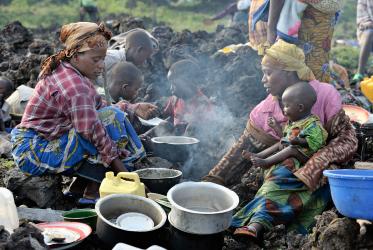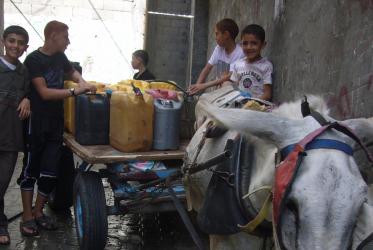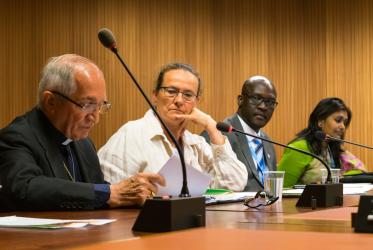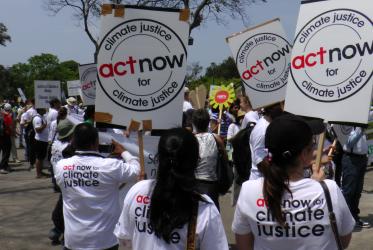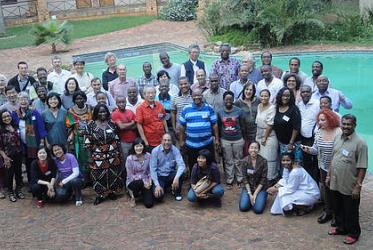Displaying 61 - 80 of 82
WCC conference explores ecological injustice in Uganda
21 April 2016
Seven Weeks for Water 2016 to focus on Holy Land
05 February 2016
Churches' “prophetic voice” will be busy in 2015
18 June 2015
WCC member churches pursue climate justice
01 April 2015
Weaving together personal faith and climate change
23 September 2014
Israeli attacks have worsened water systems in Gaza
08 August 2014
Churches engage in development dialogue on Africa
06 March 2013
Letters to the future: Eco-justice visions in South Africa
13 December 2012


